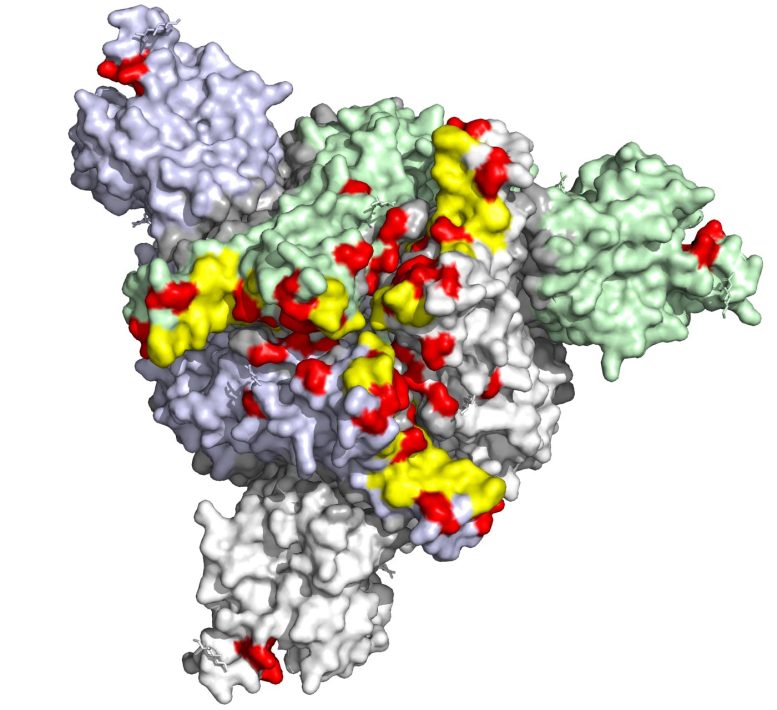COVID-19 Omicron Variant Resistant to Monoclonal Antibodies – But Neutralized by

3D visualization of mutations in the spike protein of the Omicron variant. Left: overhead view. Right: lateral view. Mutations are indicated in red. They occur all over the spike protein but particularly in the receptor binding domain (RBD) and in the region known as the N-terminal domain (NTD). Credit: © Institut Pasteur – Félix Rey
The Omicron variant was detected for the first time in South Africa in November 2021 and has since spread to many countries. It is expected to become the dominant variant within a few weeks or months. Initial epidemiological studies show that the Omicron variant is more transmissible than the currently dominant virus (the Delta variant). It is capable of spreading to individuals who have received two vaccine doses and to previously infected individuals. Scientists from the Institut Pasteur and the Vaccine Research Institute, in collaboration with KU Leuven (Leuven, Belgium), Orléans Regional Hospital, Hôpital Européen Georges Pompidou (AP-HP), Inserm and the CNRS, studied the sensitivity of the Omicron variant to monoclonal antibodies used in clinical practice to prevent severe forms of the disease in people at risk, as well as to antibodies in the blood of individuals previously infected with COVID-19 Omicron Variant Resistant to Monoclonal Antibodies – But Neutralized by

